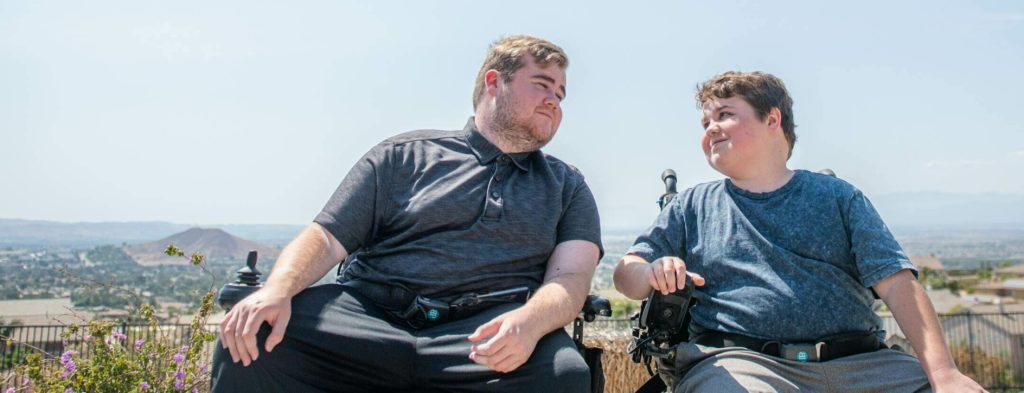Elijah awakes in his adjustable bed to the sounds of birds chirping as a steady stream of early-morning light shines through his window. With the push of a button on a remote controller, the bed lifts his legs high into the air. His power wheelchair sits against the side of the bed, lower than the mattress. Finding the correct angle, Elijah slides himself successfully into its seat. He leans the power chair forward, and then, using the joystick, steers himself out of the bedroom.
Mastering this art of transferring himself in and out of bed has been a practice of many years. It is a maneuver, one of several, that he has developed to counter the effects of Duchenne muscular dystrophy (DMD). After being diagnosed at six years old with the neuromuscular disorder, he has nurtured a keen sense for ingenuity and adaptability that allow him to retain mobility despite the progressive muscle weakness he experiences.
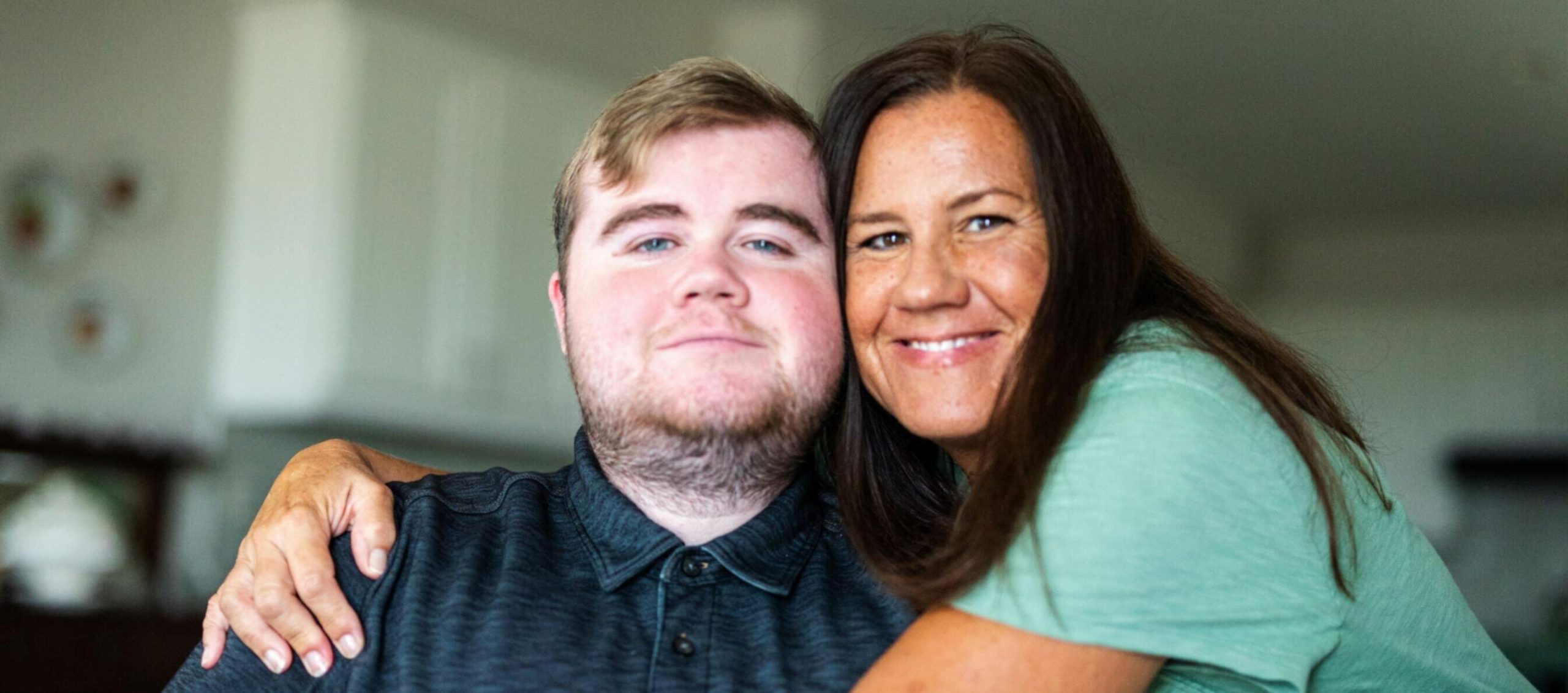
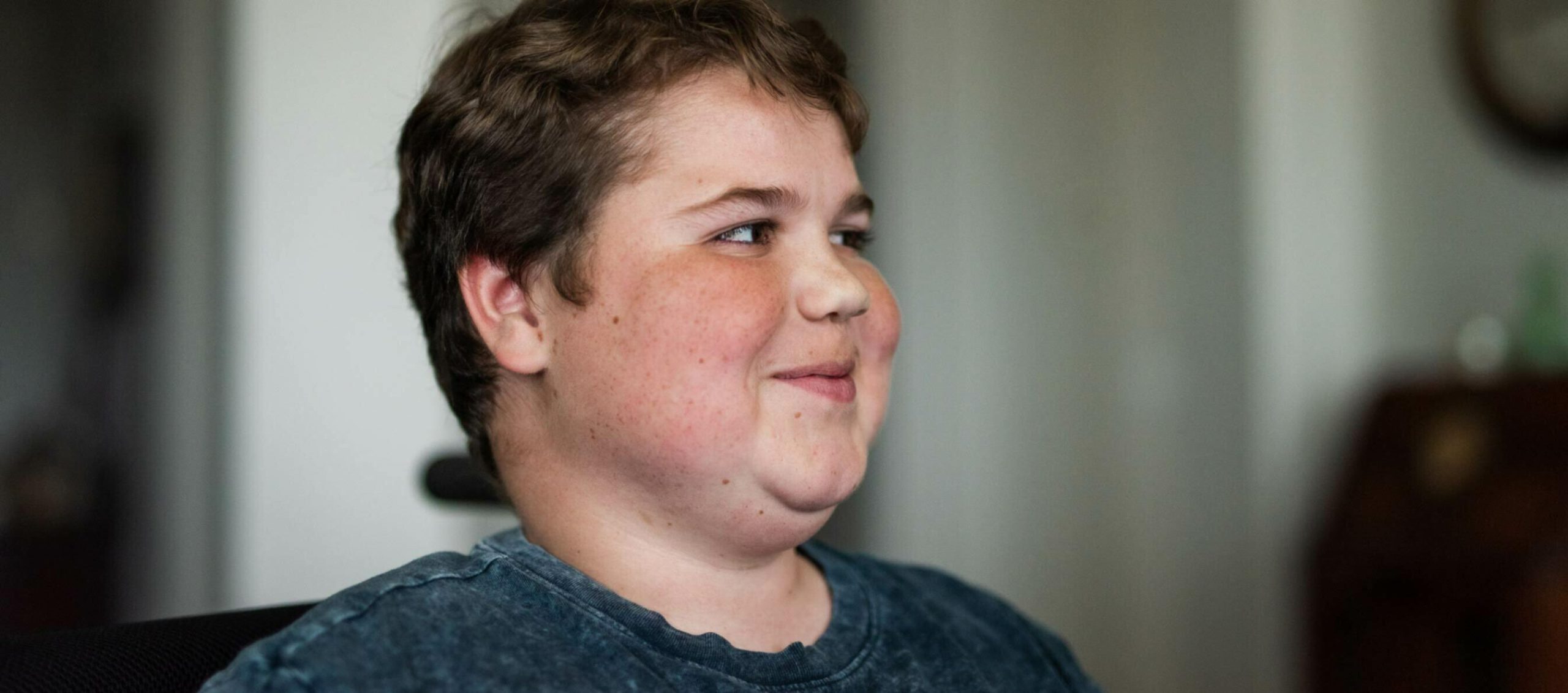
“What I’ve developed is an adaptor’s mindset,” says Elijah. “The ability to adapt, no matter what the challenge, even if that means accepting things as they are… Duchenne makes you a natural problem solver.” At the age of 11, Elijah transitioned to full-time wheelchair use, and instead of getting down about the inevitable decline, he focused his waking hours on coming up with solutions to the very real problems that he faced, overcoming physical limitations caused by the loss of muscle mass.
His younger brother, Kai, turns his video console off and says goodbye to his friends online. He emerges from his room and heads down the hallway. At 13, Kai follows in his big brother’s footsteps in more ways than one. Duchenne has certainly forced him to modify his means of mobility, and like Elijah, he began using a power wheelchair at 11. However, Kai looks up to his brother and has gleaned his tried-and-true techniques for completing daily tasks. “He always was a leader for me,” he comments, the sincerity of his appreciation evident.
Kai enters the bathroom in his power chair. By design, both his chair and the toilet stand at about the same height. Kai pushes a button to raise his wheelchair until he is an inch higher before smoothly shifting his weight onto the seat. When Kai is finished he lowers the wheelchair until it is an inch lower than the toilet seat. He lowers himself back into his chair with little fuss. He uses this trick of raising and lowering throughout his day—making tasks that are often difficult for boys with DMD who use a power wheelchair, seem natural.
“What I’ve developed is an adaptor’s mindset,” says Elijah. “The ability to adapt, no matter what the challenge, even if that means accepting things as they are… Duchenne makes you a natural problem solver.”
Simple maneuvers like this denote a skillset and a mindset that Elijah and Kai have ingeniously developed over the years. They share tips and ideas which allow for better freedom of movement around the house and an increased sense of independence. Elijah first crafted this technique using an office chair. “I could pull the lever on the chair to raise and lower it,” explains Elijah. “I could fit the office chair through narrow doorways, using my arms and feet to push myself along.”
Years ago, when his occupational therapist recommended the family redesign his bathroom, there were a host of laborious and costly additions that were recommended including a specialty shower chair and a Hoyer lift. While these devices are standard fare for families living with DMD, Elijah saw a way to avoid the expense, by taking matters into his own hands.
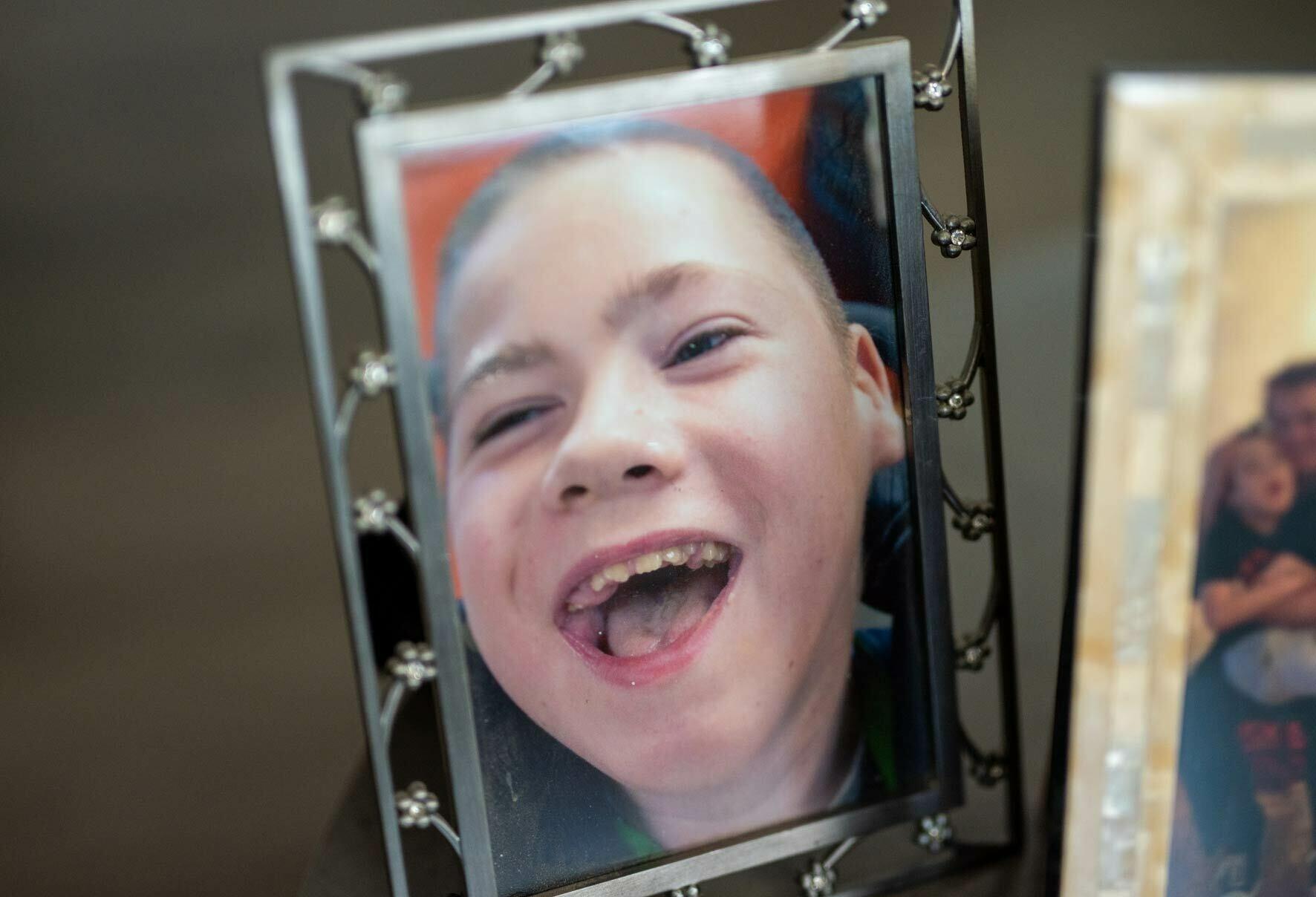
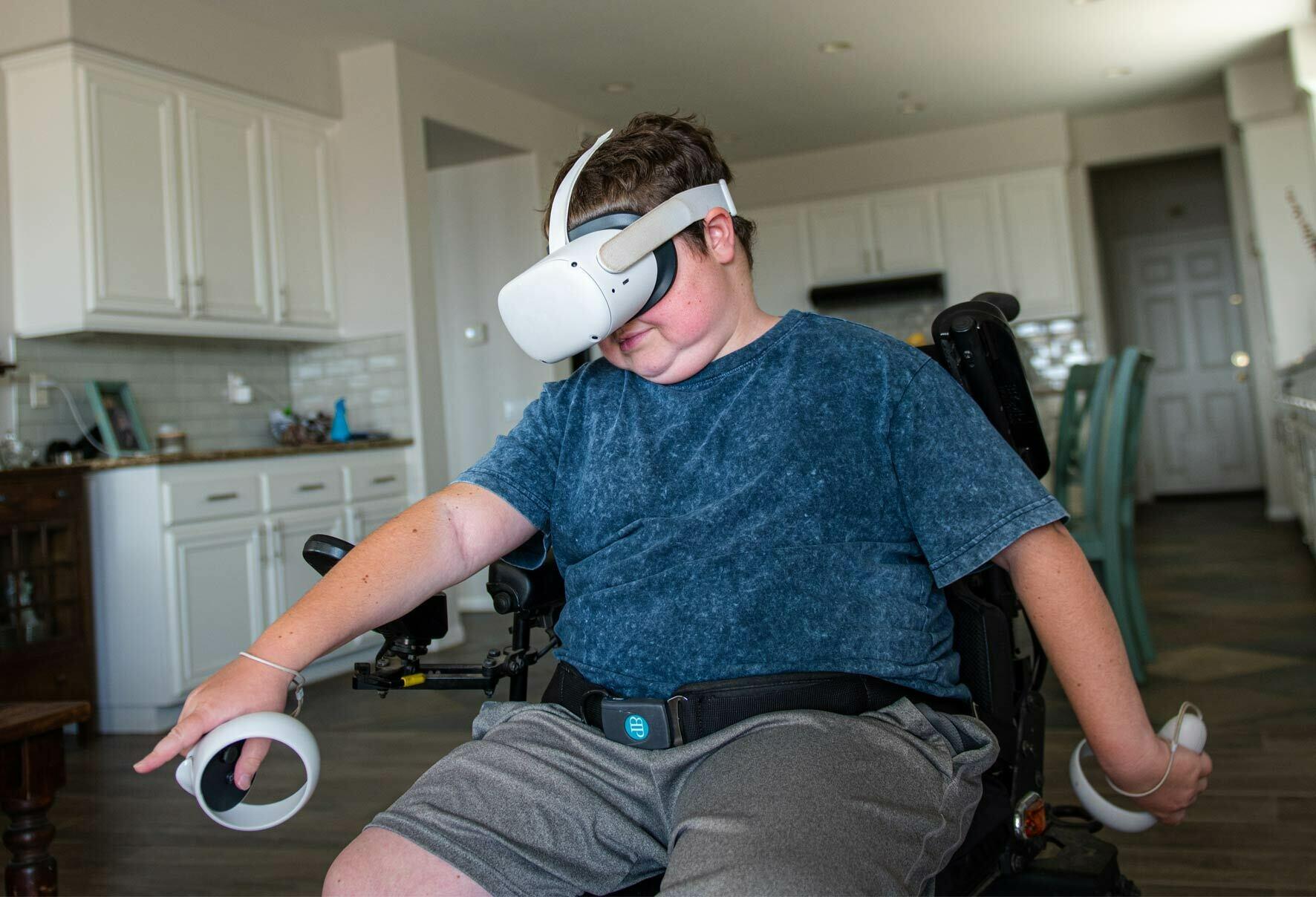
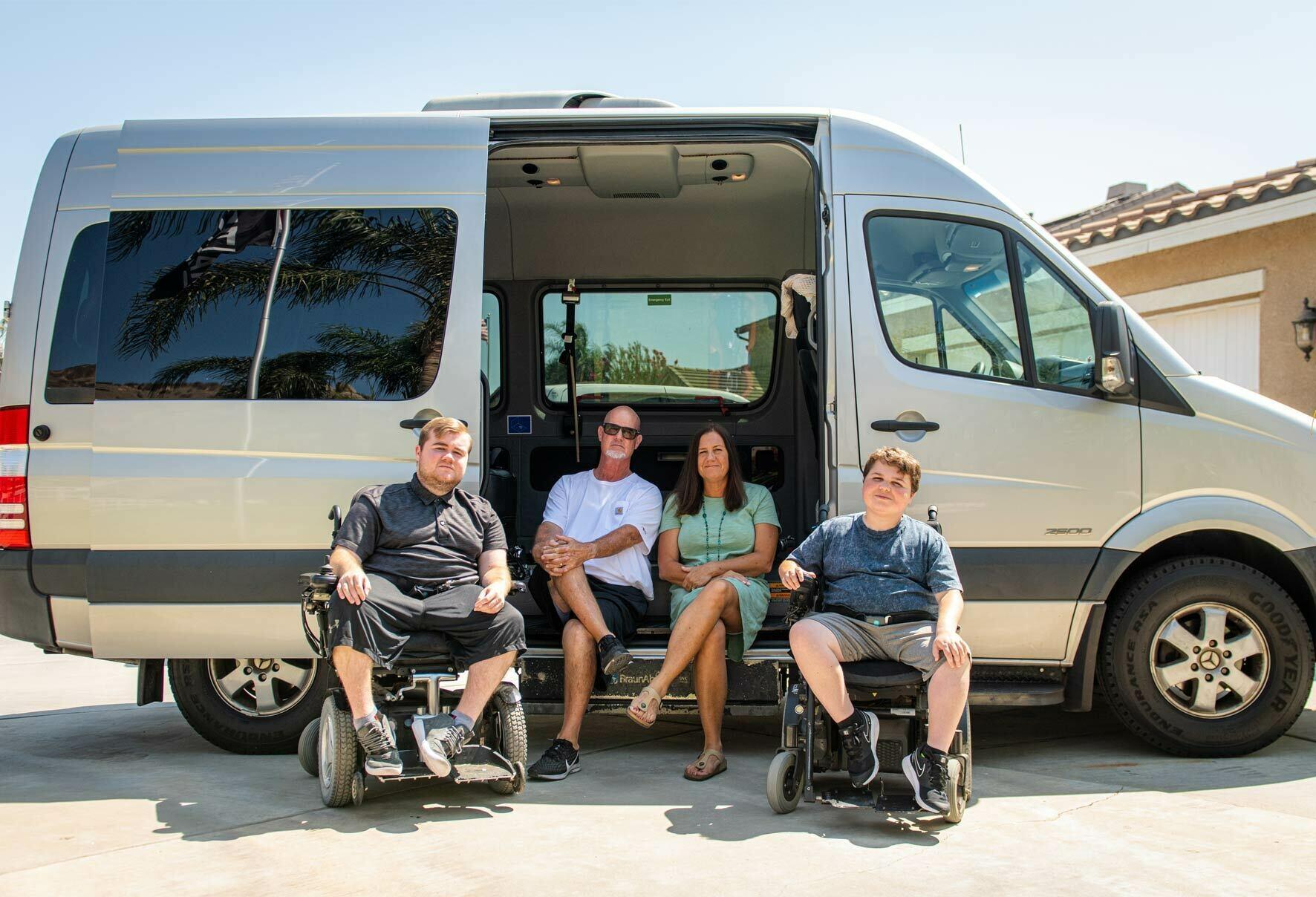
“Elijah said, ‘I don’t want to do it this way,’” says Bill, his father. Instead, based on his rolling office chair technique, Elijah made recommendations that would allow him to adapt that method while using a power wheelchair—adjusting the height of the toilet and making sure the doorway was wide enough for him to get through. “I am so thankful that we listened to him,” Bill continues. “It took a lot off of me and my wife. These two boys have worked very hard to be independent and they are.”
For Elijah and Kai, this has always been the goal as young men who refuse to acquiesce in the face of a terminal disease. “How you see yourself really matters,” says Elijah. “Yes, I recognize that I have this disease, but my identity isn’t being disabled.” He fights for recognition with no asterisks attached—to be seen as equal. “I can talk to anyone without a problem,” adds Kai. “Sometimes they forget that I’m in a wheelchair.”
Bill and his wife, Kelly, have nurtured this positive mindset by giving their boys the right conditions to thrive. Both parents grew up in the coastal confines of Orange County, California, and as college sweethearts, spent their days surfing the rugged Pacific waters. “We lived at the beach,” recalls Kelly. “We had no idea the paths our lives were going to take.” Her and Bill eventually got jobs in education and moved inland, where they bought a house and started a family.
Medical adversity and challenges did not first arrive with Duchenne. Max was born prematurely at 27 weeks and didn’t come home until he grew to proper size. He was also born with a serious heart defect—Tetralogy of Fallot—which required heart surgery within the first year of life.
They ended up having four boys in a row: Wil, Elijah, Max, and Kai. Wil, the oldest, excelled at sports and joined the football team that Bill coached at their local high school. Elijah loved to be outside with friends, go swimming, or play catch, and had a precocious knack for understanding ideas, art, and technology.
Medical adversity and challenges did not first arrive with Duchenne. Max was born prematurely at 27 weeks and didn’t come home until he grew to proper size. He was also born with a serious heart defect—Tetralogy of Fallot—which required heart surgery within the first year of life.
The operation, done by an expert pediatric cardiologist when Max was three months old, appeared to have gone smoothly. He was being transferred from the operating room, in a tunnel between hospitals, when he unexpectedly had a massive stroke. Max’s medical team provided life-saving ventilation to keep him alive, but much damage had been done. He would spend more weeks in the hospital, undergo a bypass, and eventually stabilize enough to return home.
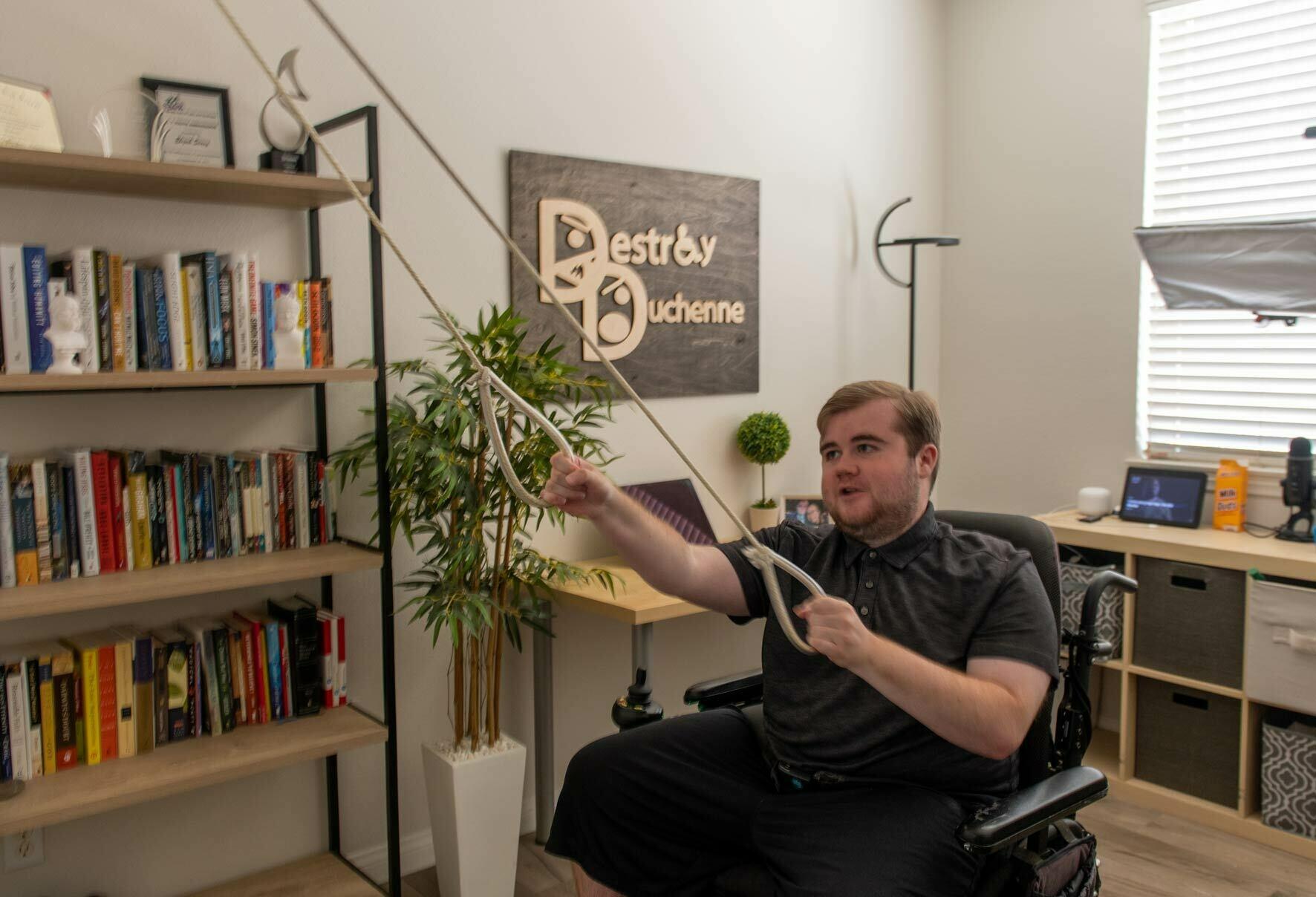
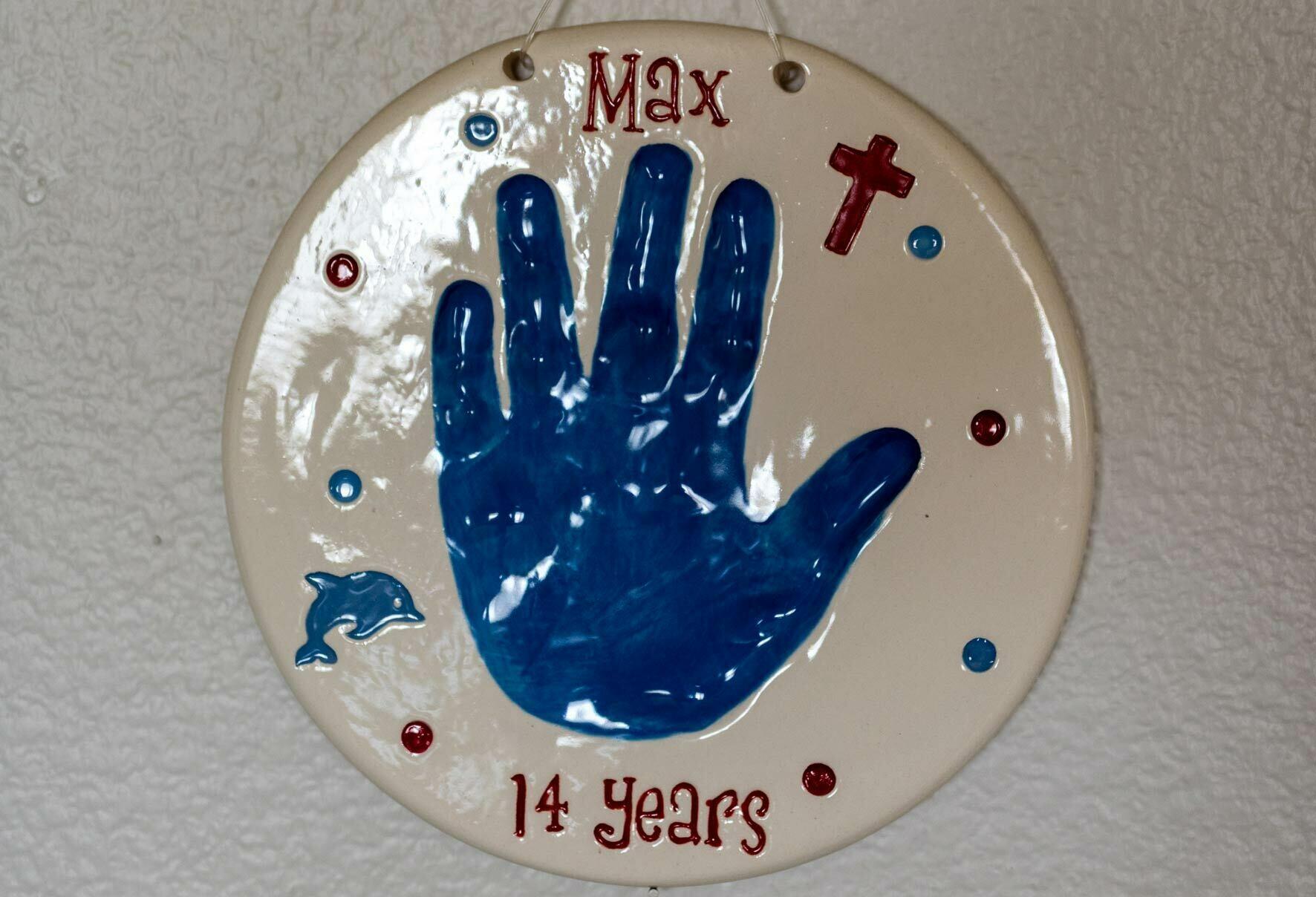
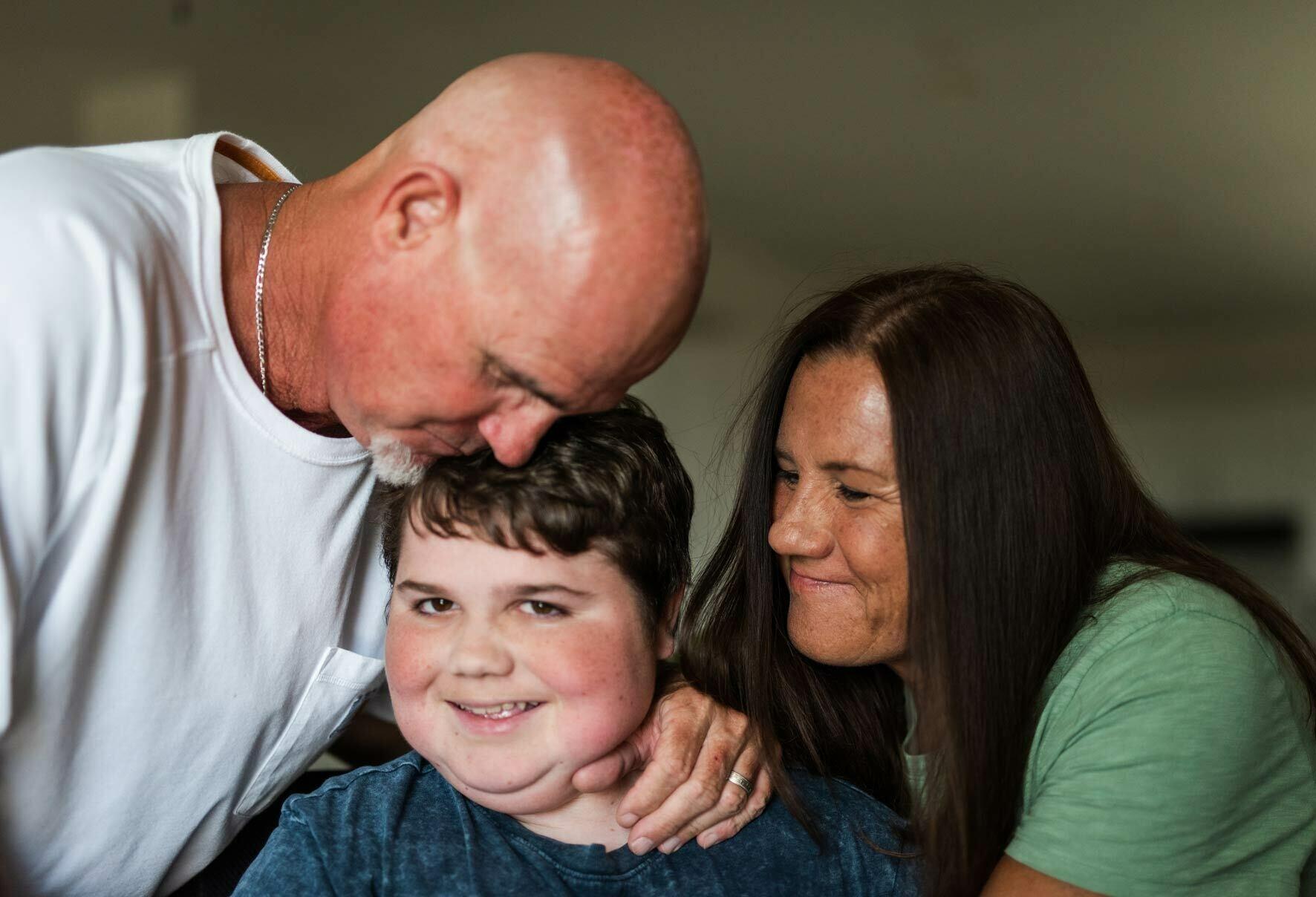
From then on, Max’s life remained in a tenuous balance that required around-the-clock care. He became fully blind, unable to feed himself, walk, or talk. Frequent hospital trips resulted in Wil and Elijah spending many nights sleeping in the car outside the hospital or alone at home. “Max taught me the lesson of self-sacrifice,” recalls Elijah, observing the immense devotion his family undertook with his little brother’s care. “But Max always overcame things that seemed to be impossible. He would do what I would call ‘a small if’: If there was a tiny possibility of being able to do something, he did it.”
No longer strangers to medical adversity, Elijah’s life became the next source of shocking news. One day, while trying to measure his height against the wall, Kelly noticed that Elijah’s heels wouldn’t rest on the ground. She thought the phenomenon was strange and spoke to her pediatrician, who brought him in for an exam. “When he saw Elijah, right away there was an alarmed look on his face,” she recalls. “I knew something was wrong, but I had no clue what.” The contracture of his foot muscles tipped off their pediatrician who tested his creatine kinase (CK) levels, a measurement which indicates the rate of muscle breakdown. After turning six, Elijah underwent a muscle biopsy and then tested positive for DMD.
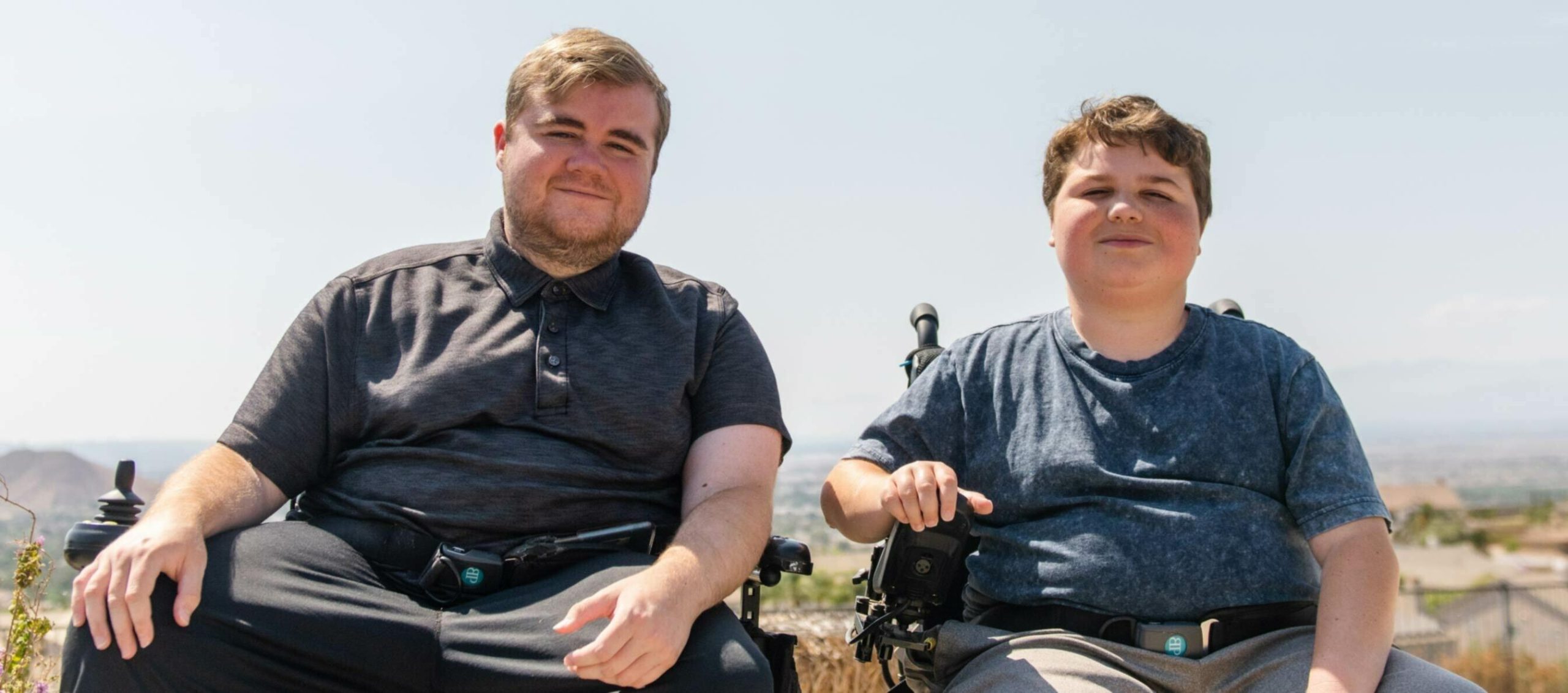
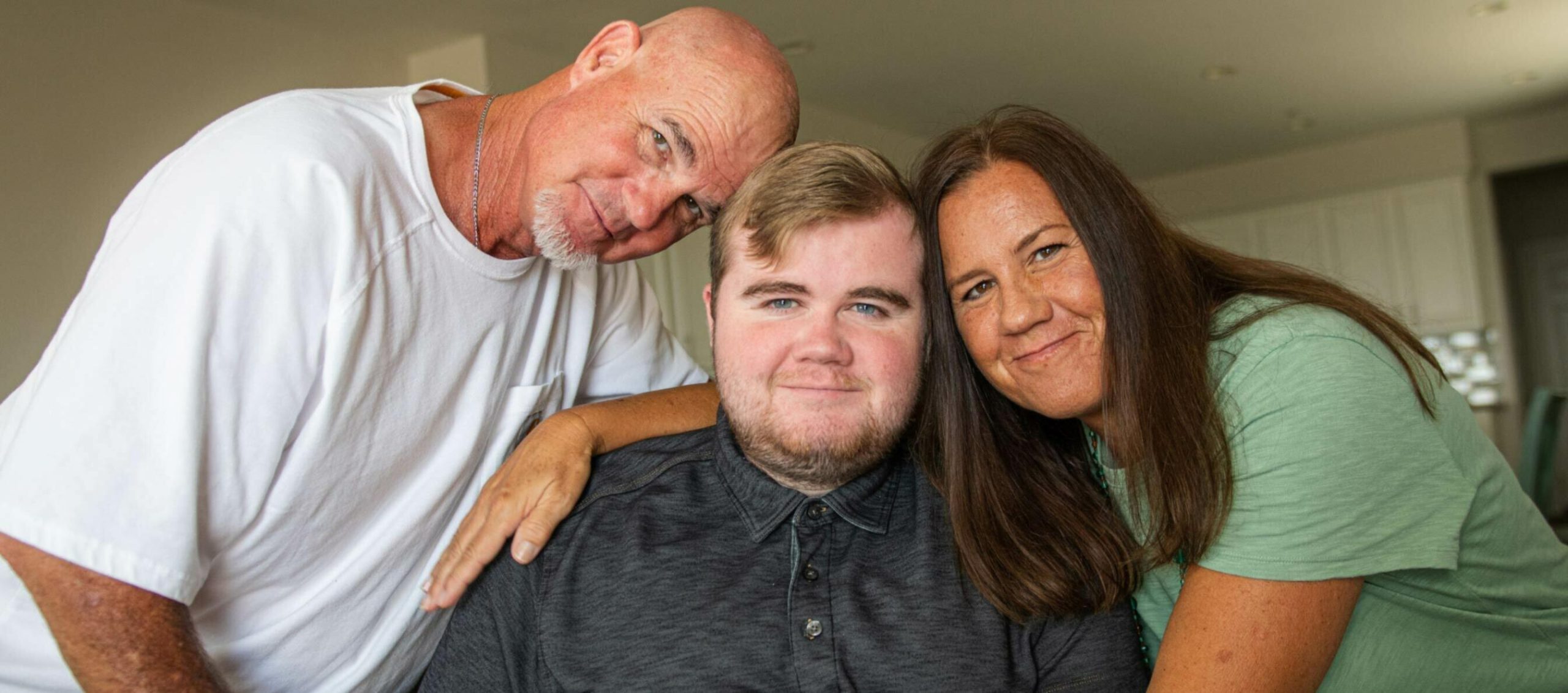
“We didn’t think Max had it,” says Kelly, shaking her head. It seemed impossible that someone in such a fragile state could also survive with Duchenne. However, Kai, the youngest brother, began exhibiting signs, similar to Elijah’s, that eluded to his diagnosis. “We needed a break from the bad news,” relates Kelly. They decided to hold off on testing Kai until he was older, allowing him and them to enjoy years of relative health. Kai was always treated as normal. “He would meet other kids and ask, ‘Where are their wheelchairs daddy,’” recalls Bill. At eight years old, Kai and Max were both tested for DMD. Kai tested positive, and to their surprise, Max did too.
As unlikely as it seemed, Max had been surviving despite added complications from a neuromuscular disease and in fact, the diagnosis helped explain some elements of his decline. At the age of 10, Max stopped being able to swallow. The difficulties only continued. At 13, he caught a bad case of parainfluenza and spent almost two months in the ICU. The family took him home, only to return six weeks later. Just before Thanksgiving, his lungs collapsed and doctors recommended a tracheostomy to keep him ventilated. The time had come to have a frank discussion with the doctor about letting Max go. “We prayed about it. We felt peace about it,” says Kelly. “We said ‘Okay, we’re going to start taking breathing support away.’”
While Max died at 14, his presence and influence on his family remains ever-present. “Max taught us how to be better people—how to be selfless,” says Kelly. “He was the greatest teacher who never spoke,” adds Elijah pithily. The gravity of his loss has a solid counterweight in the tranquil disposition that he maintained despite his suffering. “He was always happy,” remembers Elijah. “He loved music. I always thought it was interesting how somebody who had nothing could be so happy.”
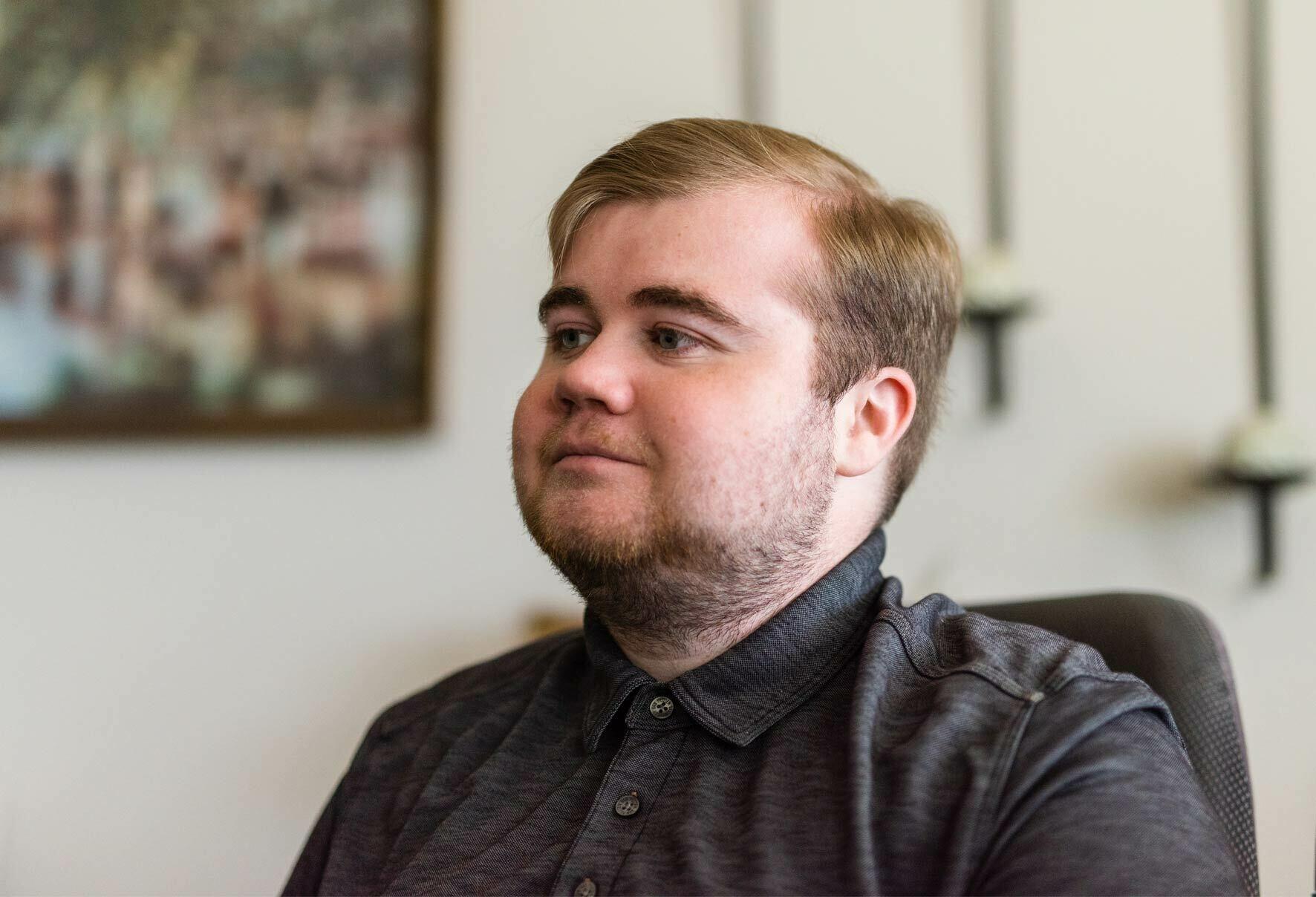
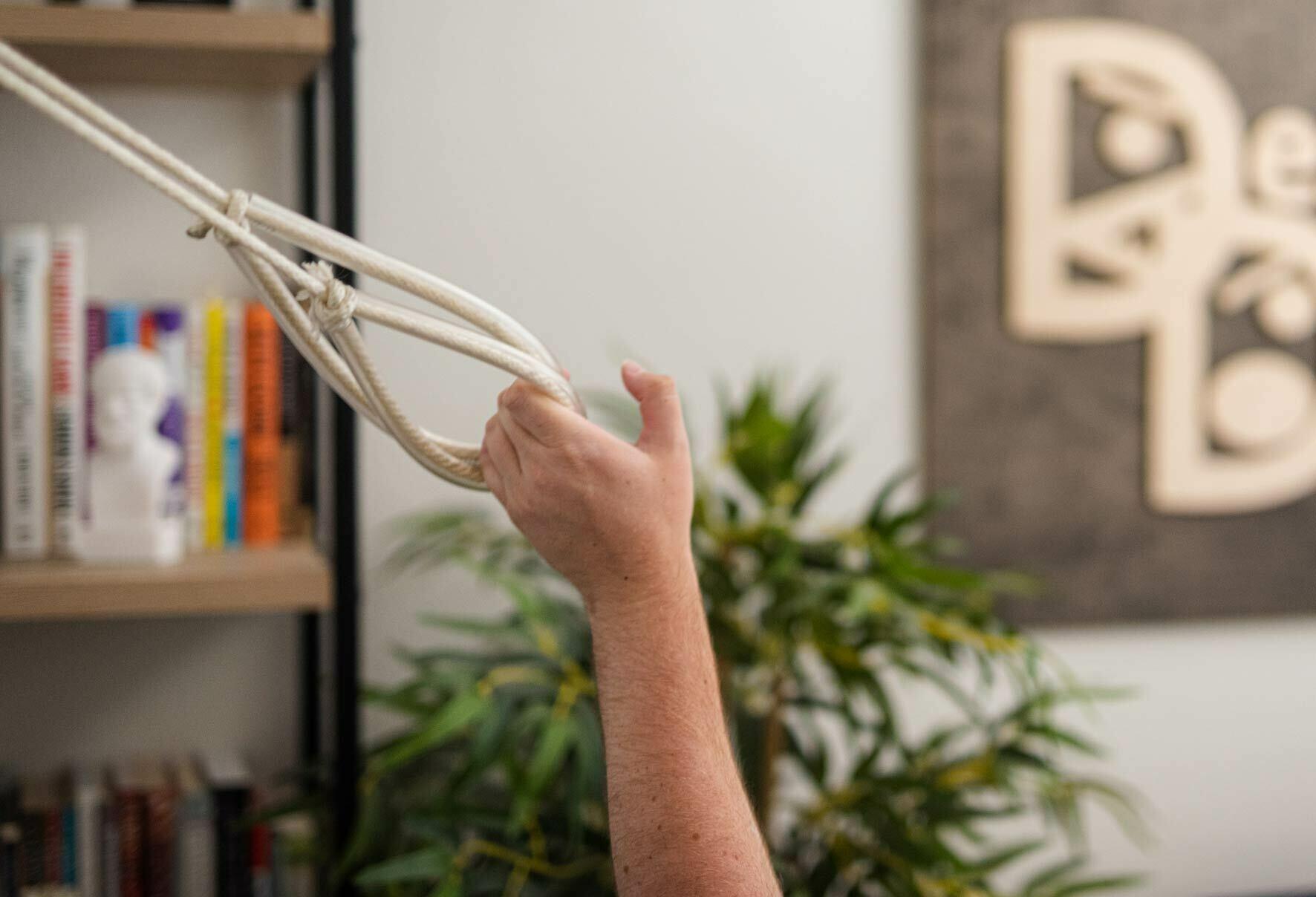
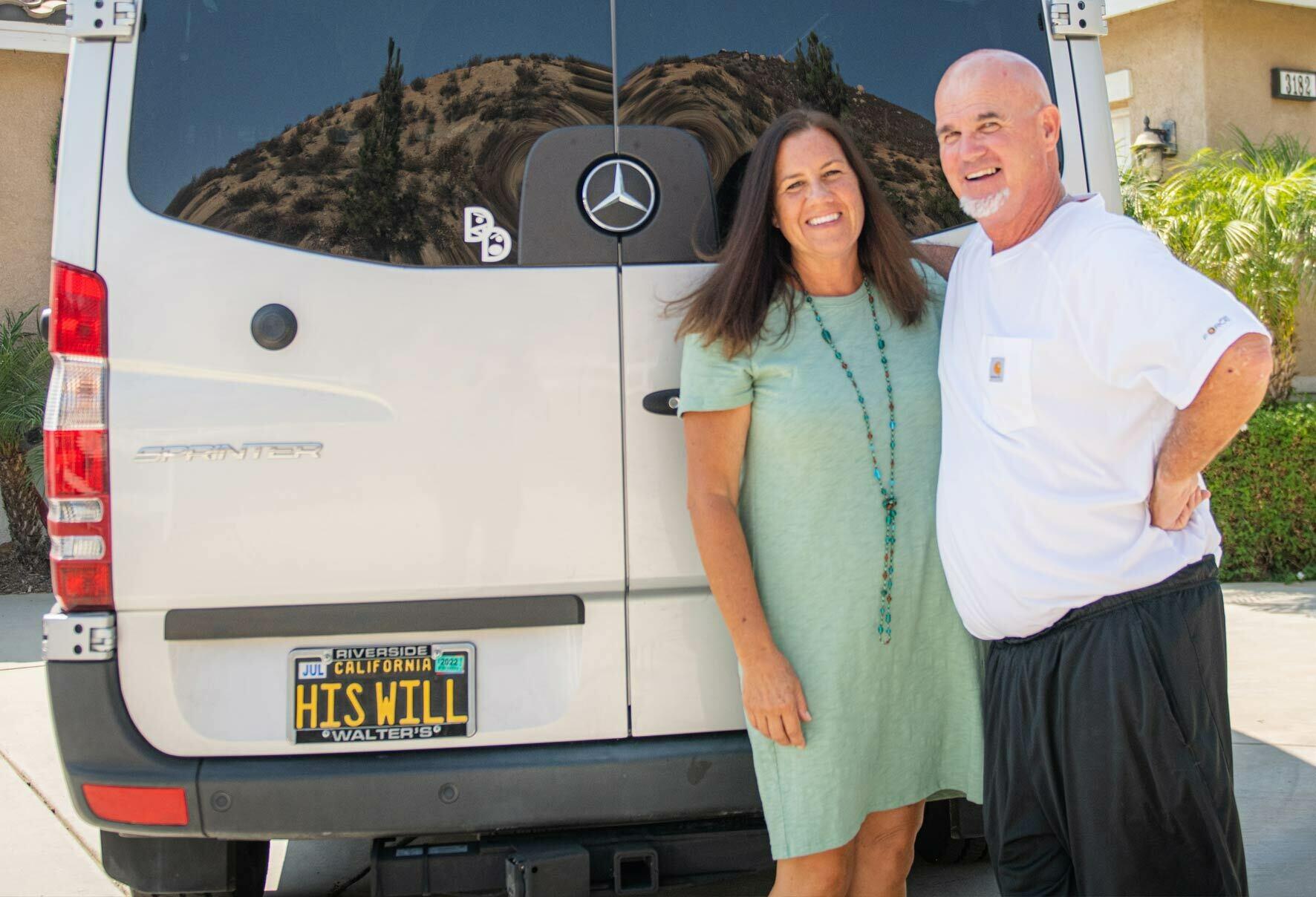
“Max taught us how to be better people—how to be selfless,” says Kelly. “He was the greatest teacher who never spoke.”
With the loss of his brother still fresh, Elijah decided to take action on his own behalf. He saw an opportunity to improve his and Kai’s condition rooted in a deeper yearning to cure the disease they both live with. His prognosis was coming into focus, and as Elijah better understood his predicament, he knew that waiting was not an option.
“I like when people tell me I can’t do something,” says Elijah. “It gives me rocket fuel to do exactly that.” His purposes aligned and using connections he made through mock trial in high school, he met with lawyers and other businessmen until he founded the nonprofit organization, Destroy Duchenne, at the age of 15. “Our mission is to complete the cure for DMD by advancing gene editing and gene therapy technology into human practice. The vision is to see people’s health restored back to normal. This is a really big vision.” While he sees any treatment that helps people living with the disease as important, he truly believes that these technologies hold the biggest potential for “fixing the spelling errors” in the genes of boys who live with DMD.
Harnessing the adaptive mindset has allowed Elijah to proliferate his ideas and messages to the world. With Destroy Duchenne he began creating podcasts and writing about his experience. This morphed into a book project, A Small If, an autobiographical tale published in September 2021. The memoir is broken down into lessons that Elijah has learned through his and his family’s experience, of devotion, loss, and adaptability.
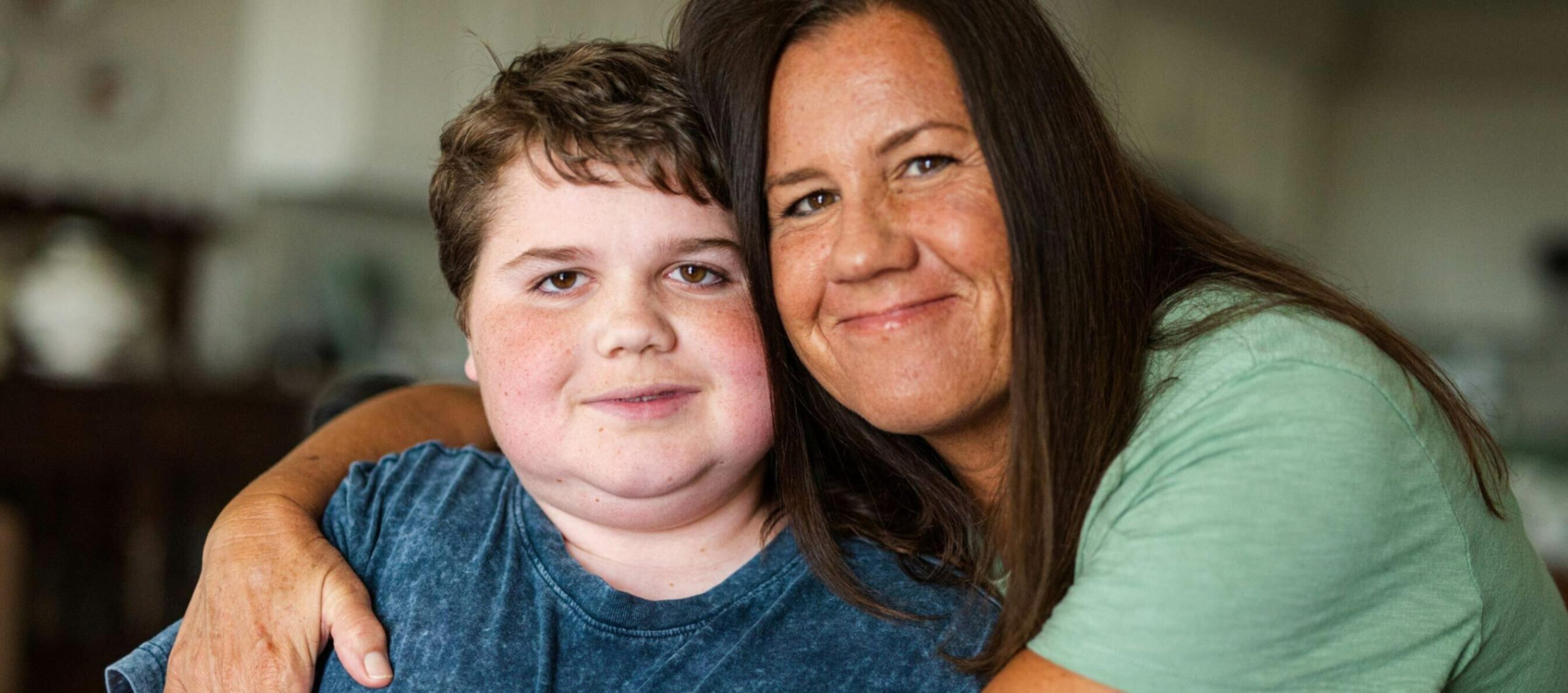
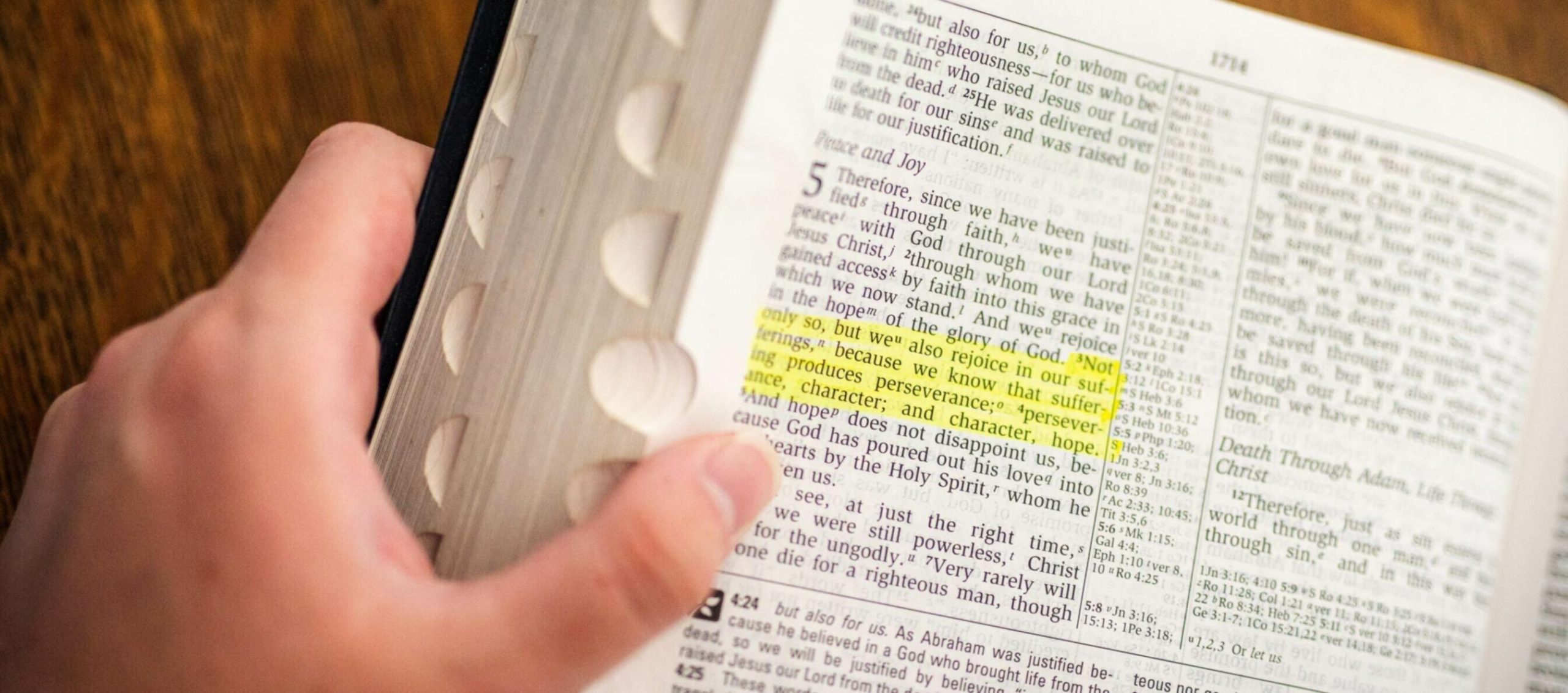
As Kai and Elijah grow, more challenges will arise with the progression of their disease. This truth is scary and real, and has necessitated the conviction and character that helps the family move forward. Church has been an integral piece of support throughout the past two decades of trauma and tribulations. The family’s Faith is a cornerstone of their identity and it works in concert with science to provide the healing and community that the boys need, existing alongside the day-to-day care and grind that Kelly and Bill orchestrate to support their boys’ dreams.
Later that evening, the family heads out for a night on the town. Elijah is excited to see his girlfriend and other friends at a local restaurant, and Kai, as usual, is eager to tag along. Kelly and Bill pull up and extend the ramp from their adaptive van to the curb. The two boys speed off in their chairs, excited for socializing and good food.
Kelly winks at her husband and the two drive off to have their own date night—something uncommon over the turbulent years as parents managing their children’s medical needs. Taking advantage of moments like this are key to maintaining a hard-fought sense of normalcy. “My wife makes it all happen,” says Bill. “She keeps us calm. She keeps us organized. Her outlook on life and the boys makes it all work. She’s the glue.” With their boys finding joy in the world and the memory of Max strong in their hearts, appreciation has few limits in this family.
